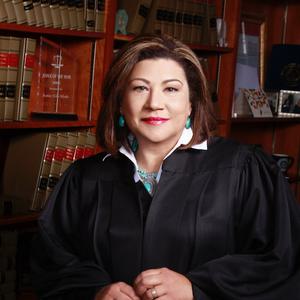The following article by Henry Weinstein appeared in the Los Angeles Times, July 28, 2005:
(DPIC Note: The Senate Judiciary Committee put off markup of the Streamlined Procedures Act, probably until September. Also, see Letter from former Attorneys General and prosecutors opposing this legislation.)
THE NATION
Bid to Speed Death Penalty Appeals Under Fire
Conservatives and former prosecutors are among foes of a bill, before a
Senate panel today, to curtail ‘endless’ delays in cases.
By Henry Weinstein
Times Staff Writer
The Senate Judiciary Committee will take up legislation today meant to
streamline the death penalty appeals process — something critics fear could
lead to the execution of the wrongly convicted.
Opposition is mounting to the Streamlined Procedures Act introduced in the
Senate by Jon Kyl (R-Ariz.) and in the House by Dan Lungren (R-Gold River).
Concerns come not only from death-penalty opponents but from individuals and
groups not often thought of as vocal supporters of the rights of criminal
defendants.
Among the critics are the Rutherford Institute, a conservative legal group
that specializes in religious freedom and antiabortion issues; Bob Barr, the
conservative Republican former congressman from Georgia; more than 50 former
prosecutors; and more than a dozen former federal judges.
The legislation, opponents say, would dramatically restrict federal courts’
ability to consider habeas corpus petitions from state prisoners who claim
that their constitutional rights have been violated or that they have
evidence they are innocent.
Habeas corpus is the centuries-old method of challenging allegedly illegal
imprisonments by giving inmates a day in court to assert that a serious
error has been made in their case.
Kyl and Lungren introduced virtually identical bills in the Senate and House
to remedy “endless delays” between convictions in capital cases and
executions.
They say that restrictions Congress imposed in the Anti-Terrorism and
Effective Death Penalty Act of 1996 are not enough.
Kyl said the number of habeas corpus petitions pending in federal district
courts had increased to 23,218 in fiscal year 2003, from 13,359 in fiscal
year 1994, citing Administrative Office of the Courts data.
The bill would impose a host of restrictions on an inmate’s ability to get a
federal court to hear a habeas corpus petition.
A group of former federal judges, in a letter of opposition, told the Senate
Judiciary Committee that “there are now too many instances to ignore in
which innocent people were sentenced to prison, or even to death, and it
took years for the evidence of their innocence to come to light.”
Kyl said the bill had an exception that would enable innocent people to
obtain relief from a wrongful conviction.
But the former judges — including William H. Webster and William S.
Sessions, both of whom served as directors of the FBI in Republican
administrations — countered that “the language of the exception is so narrow
that it will cover virtually no one.”
The former jurists also said the bill would overturn several recent Supreme
Court decisions interpreting the 1996 death penalty act “as well as several
other decisions of the Rehnquist court, many of which have helped to further
streamline the system and eliminate delays. It serves no one’s interests to
engender the kind of delays that this bill will create” by precipitating
more litigation.
Moreover, the judges said, the impact of the bill would be “far more
sweeping” than death penalty cases. The restrictions it would impose would
cover “every state criminal conviction,” including cases involving
businesses, firearms and the environment.
The sweep of the measure is troubling and unwarranted, Barr said in a letter
sent Wednesday to Judiciary Committee Chairman Arlen Specter (R-Pa.).
“I stand second to no one in believing in swift and certain justice,” wrote
Barr, a former prosecutor and one of the authors of the 1996 law. He said he
thought the law was “working well to restrict [habeas corpus] petitions” and
had seen “no evidence to the contrary.”
“As a former member of Congress, I know that unfortunately there are times
when political pressures lead to imprudent decisions that can be destructive
to basic constitutional liberties…. [This] is an example of legislation that
is being pressed without sufficient deliberation, and without any real
evidence that it is needed.”
Among the former prosecutors against the bill are Ira Reiner, who served as
Los Angeles County district attorney from 1984 to 1992, and Gil Garcetti,
who held the position for eight years after that.
Reiner, who is a proponent of the death penalty and sought it dozens of
times while running the district attorney’s office, said he strongly opposed
“this ill-conceived bill … whose transparent purpose is to strip the federal
courts of their jurisdiction to review state criminal court proceedings.”
He said it would “eviscerate the role of the federal courts in ensuring that
innocent persons are not mistakenly convicted of crimes and that state
courts do not send people to prison in violation of their constitutional
rights.”
At the first Senate hearing on the bill, Kent Cattani of the Arizona
attorney general’s office testified in support of the measure. Specter asked
him whether Congress had “the authority to strip the courts of jurisdiction
on constitutional issues.” Cattani replied, “Yes, I think Congress has the
authority to do so.”
At the same hearing, Seth P. Waxman, who was U.S. solicitor general in the
Clinton administration, described four death penalty cases in the last four
years in which the Supreme Court found major constitutional violations
overlooked by state courts. In one instance, prosecutors hid critical
information from the defense. In another, the Supreme Court found that
prosecutors had improperly kept blacks off a jury. If the Kyl-Lungren bill
had been in effect, none of those cases would ever have been reviewed by a
federal court, Waxman said.
“The title of this bill suggests that it would streamline the processing of
habeas corpus cases,” Waxman said. But Waxman said he found “something else
entirely: Section after section of the bill would eliminate federal court
jurisdiction to decide federal questions” in such cases.
Attorney Barry Scheck, co-founder of the Innocence Project, which had played
a key role in freeing more than 100 wrongly convicted people — eight of whom
had been on death row — said a number of those people would be in prison or
dead if the proposed legislation had been in effect.
Scheck told the Judiciary Committee that the proposed law turned the lesson
of those cases “on its head. It threatens to make what is already a
torturous, difficult mountain for the wrongfully convicted to climb into a
wholly impenetrable steel wall.”
“Finding innocence is a fits-and-starts kind of process,” said New York
attorney George Kendall, who has litigated death penalty cases for more than
two decades. “Habeas corpus was never supposed to be about innocence alone.
It was always about whether the state courts faithfully applied federal
constitutional law.
“This bill turns that on its head,” insulating state courts from any
meaningful review, he said.
Six people exonerated as a result of federal habeas corpus proceedings
attended the first Senate hearing, including Thomas Goldstein, who was freed
last year after 24 years in prison for a wrongful conviction in a Long Beach
murder.
Goldstein’s challenges to his conviction fell on deaf ears in state court.
But five federal judges in California who reviewed the case found that his
constitutional rights had been violated by prosecutors who used an
unreliable jailhouse informant and by police who steered an eyewitness into
incorrectly identifying Goldstein.
- - - - -
New Voices
Mar 21, 2024

Retired Judge Elsa Alcala on the Death Penalty in Texas
New Voices
Mar 21, 2024

Discussions with DPIC Podcast: Retired Judge Elsa Alcala on the Death Penalty in Texas
Recent Legislative Activity
Jan 12, 2024


